Въведение - 4 март, вторник
І. За работата през семестъра
1. Произведения за обсъждане
а. Оди в превод на български
- Първа Питийска
- Осма Питийска
- Единадесета Олимпийска; Дванадесета Питийска
б. На старогръцки
2. Начин на обсъждане
Да се прочете и коментира одата. При това:
а. Да се раздели на части според смисъла на текста
б. Да се отделят типовите (характерни за жанра и специално за Пиндар) теми (род на победителя; митове, разказани по определен повод; размисли - за поезията, за нравите; други)
в. Да се обсъдят трудностите за разбирането - както когато се чете в превод, така и при четене на гръцкия текст
ІІ. Първа Питийска Ода
1. Съдържание
Певците в хора се подчиняват на музиката, идваща от лирата (phorminx) - тя самата принадлежи на Аполон и Музите. Лирата угасява Зевсовата светкавица и дори приспива орела му. Под нейните звуци заспива и Арес, оставил копието си. Тя очарова умовете на боговете (daimonon phrenas) с мъдростта на дълбокоскутните (bathykolpoi) Музи (1-15).
Но неприятелите на Зевс се боят от гласа на Музите. Сред тях е и противникът на боговете (theon polemios), отгледаният в киликийска пещера Тифон, чиито гърди сега са притиснати под скалите на Куме и под цяла Сицилия. Задържа го и Етна, от която излизат пушеци, пламъци и скали, отлитащи с трясък чак в морето. Реки от огън излизат от гърлото на това влечуго (herpeton) - чудно да бъде видяно, чудно дори да се чуе за него (16-28).
Зевс, на чиято обич се надяваме, владее планината и плодородната земя около нея. Името на съседния на планината град е прославено от основателя му, прочутия Хиерон, който беше обявен за победител на Питийските игри в състезанието с колесници. Както попътният вятър помага на моряците и им предвещава щастливо завръщане, така и този успех в състезанието ще прослави града. Нека и ликийският Аполон, царуващ над Делос и обичащ касталийския извор до Парнас, да внимава за това (nooi tithemen) и да обогатява земята с прекрасни мъже (29-40). Боговете идва всичко, с което хората са добродетелни, мъдри, сръчни и красноречиви. Аз се надявам да възхваля този мъж така, сякаш хвърлям копие - и ще го направя по-добре от съперниците си. Дано времето да носи щастие и блага на Хиерон и да облекчи болките му. Водил е много битки и с помощта на боговете е постигнал чест, каквато не е имал никой сред гърците. Подобен е на Филоктет, който, макар и болен, беше доведен пред Троя, за да участва в разрушаването й и да прекрати мъките на данайците. Боледуваше, но съдбата му беше добра. Нека така да помага на Хиерон и богът, който поправя бедите (orthoter), та да случи с времето, каквото мечтае (41-57).
2. Коментари
The date of this victory is B.C. 474. In the year 480, the year of Salamis, the Syracusans under Hieron had defeated the Carthaginians in the great battle of Himera.
In 479 a great eruption of Etna began. In 476 Hieron founded,
near the mountain but we may suppose at a safe distance, the new city
of Aitna, in honour of which he had himself proclaimed as an Aitnaian
after this and other victories in the games.
And in this same year, 474, he had defeated the Etruscans, or Tuscans,
or Tyrrhenians in a great sea-fight before Cumae.
Pindar might well delight to honour those who had been waging so well
against the barbarians of the South and West the same war which the
Hellenes of the mother-country waged against the barbarians of the
East.
(E. Myers)
The victory commemorated in this poem was gained Pyth. 29, or Ol. 76, 3 (474 B.C.). Hieron had himself proclaimed as a citizen of Aitna in order to please the city founded by him, Ol. 76, 1 (476 B.C.), to take the place of Katana. In the same year he had gained a victory over the Etruscans, thus crowning the glory of the battle of Himera. The great eruption of Aitna, which began Ol. 75, 2 (479 B.C.), and continued several years, figures largely in this poem, which has been much admired and often imitated...
(B. L. Gildersleeve)
ІІІ. За Пиндар
Kynoskephalai in Boeotia 522 - Argos after 446
Pindar's life attracted considerable attention in ancient times, but recent scholarship has shown that much biographical material consists of questionable deductions from his poetry. We can still, however, say something about Pindar's life.
A biography of Pindar attached to a manuscript of his poems (Vita Ambrosiana, fr. 193) quotes a poem, unnamed and otherwise lost, in which Pindar says of himself: “it was the fourth-yearly festival, the one with a procession of oxen, in which I, well-loved, was first put to bed in my swaddling clothes: pentaetêris heorta boupompos, en hai prôton eunasthên agapatos hupo sparganois).” This festival was the one sacred to Pythian Apollo and celebrated at Delphi (which began with a procession of oxen). Since this is quoted as Pindar's own statement, it is one of the best pieces of evidence that we have about his life and far more reliable than those details reported in the Vitae or other late sources. Ancient sources place his “floruit,” the peak of his career, generally reckoned to be the age of 40, at the time of Xerxes’ invasion, 480. This would place his birth at the festival of 522 or 518, with little to choose between the two.
We do not know when Pindar died, but his latest surviving poem (Pind. P. 8) dates from 446, when he was in his seventies, and scholars have traditionally assumed that he died shortly thereafter.
The ancient biographical sketches of Pindar present conflicting views of his parentage and the details of his family. More important, though controversial, is a single remark which Pindar makes in one of his poems. The text of a poem to Arkesilaus, the ruler of the Greek colony Kyrene, refers to a famous and ancient Greek clan, the Aigeidai, as “my fathers” (Pind., Pyth. 5.76). Elsewhere, Herodotus (Hdt. 4.149) mentions the original Aigeus, who founded a “great clan” (phulê megalê) in Sparta. Pindar's reference indicates that this clan first played a major role in the founding of the island colony Thera, one of Sparta's few colonies, and then in the subsequent foundation of Kyrene by Thera. If we are to understand the speaker in this poem to be Pindar, then he is claiming to be part of an ancient and now international clan with connections to Sparta, Thera and Kyrene. Some scholars feel that the “I” in this case is conventional and does not describe Pindar himself. In any case, the Aigeidai are a typical extended kinship group such as those we see elsewhere in Pindar.
The extended family of a victor or any individual is a major concern in Pindaric poetry. Pindar's poems do not simply celebrate the particular victories which his patrons may have won in recent games. He uses his poems to emphasize, where possible, two aspects of the victor's family: its antiquity and its wide connections throughout the Greek world.
Surviving Poems:
First - P. 10 498, Last - P. 8 446
Pindar's own poetry provides us with our best evidence of his career, but scholars have argued at length as to how much these poems tell us. Nevertheless, it is certainly clear that Pindar associated with many of the wealthiest and most prominent members of Greek society, that he had a long term relationship with several tyrants in Sicily and that he worked frequently with citizens from the small but prosperous island of Aigina, a rival and eventual victim of Athens.
His own Boeotian background surely had some effect on the way he interacted with others in Greece. He seems to reject a tradition that Boeotians were crass and uneducated, when he challenges someone to see “whether we truly escape that ancient reproach, ‘Boeotian pig’ (Pind. O. 6.89-90).” His Boeotian citizenship would tend to place him at odds with Athens, and Athenians play a distinctly minor role in Pindar's work. Nevertheless, it is not clear to what extent local rivalries would have affected such a man as Pindar, who clearly belonged to the cosmopolitan elite of archaic Greece. Among the elite, ties of family and friendship often crossed the narrow boundaries of the polis. When Athens and Sparta first began to quarrel in the mid fifth-century, for instance, the Athenian statesman Cimon, who had named his son Lakedaimonios (“The Spartan”), reportedly felt that he had to prove his loyalty to Athens over Sparta in dramatic fashion at the battle of Tanagra (Plut. Cim. 17.3-5).
Pindar himself, it should be stressed, was a celebrated personality, and an association with this poet brought to wealthy tyrants a prestige which money did in fact buy. Poets like Pindar (and his contemporaries Simonides and Bacchylides) used their literary skills and reputation to inscribe their patrons in the poetic tradition of Greece. These poets played a major role in creating a respectable and even venerable image of their patrons in the Greek world at large. A poet such as Pindar had much to offer to the most powerful men of his time, and should not be seen as a mere dependent hanger-on at the courts of the great.
Of all Pindar's writings, only the four books of “Epinicians” (poems written to commemorate athletic victories at the greatest contests in the Greek world) have survived intact. Our perception of Pindar as a poet thus necessarily overemphasizes this category of poetry, distorting in some measure our view of his work. Nevertheless, epinician poetry seems to have been immensely popular at the time, and the victories celebrated in these poems should not be seen as objects of ephemeral interest. When Aristophanes portrays a “standard” conservative middle-aged Athenian man in the 420s, he has this man ask his son to sing him an epinician poem composed by Pindar's contemporary, Simonides. Simonides died in 468. Aristophanes’ typical Athenian thus asks to hear a poem about a victory that took place more than forty years earlier.
In another play, the Birds, Aristophanes parodies the events which followed the foundation of a city. At one point, a poet enters and promises-in exchange for various gifts-to praise the new city in his poetry. This poet imitates two passages of Pindar (Aristoph. Birds 926-7 and Aristoph. Birds 945 echo Pind. fr. 105a, while Aristoph. Birds 941-5 recalls Pind. fr. 105b). Aristophanes is clearly parodying the way in which Pindar helped Hieron, the tyrant of Syracuse, celebrate the foundation of the city Aitna in 476/5, an event which took place on the other end of the Greek world and more than sixty years before the Birds was produced (414). Lyric poets such as Pindar and his older contemporary Simonides (who is also mentioned in this section of the Birds, Aristoph. Birds 919) were enormously famous and their words were recited throughout the Greek world.
Pindar and his colleagues differ markedly from the tragic playwrights in more than subject matter or format. Pindar's poetry was designed to be performed throughout the Greek world. It did a tyrant in Sicily or an athlete in Rhodes relatively little good if Pindar's poetry were performed once and then remembered only in the patron's native city state. Pindar's poetry had to appeal to the same international audience that patronized the great Panhellenic festivals at Olympia, Delphi, Nemea and the Isthmus. Greek tragedy was, by contrast, performed at Athens, and the citizens of Athens met each year to pass judgment on the tragedies which they had seen. If a playwright expected to find someone to bear the production costs of his work, he needed to succeed with this local audience. What people thought of Aeschylus, Sophocles or Euripides in Sicily or Macedonia was of interest, but of little importance compared to local Athenian opinion. It is ironic that tragedy, the most parochial of all Greek poetic forms, ultimately gripped the imagination of the Greek world, while the lyric poetry of Pindar, which had always been aimed at a cosmopolitan audience, declined in importance with the poet's death.
Yet the relative growth of tragedy over lyric has at least one driving cause. Pindar's poetry was aimed at an international audience, but this audience consisted of a small elite. Pindar's work is openly complex and difficult to appreciate. He challenges his listeners to follow his meaning, for the ability to appreciate Pindar was itself a sign that one belonged to the Greek elite. Tragedy's audience, though Athenian, drew from all segments of the Athenian citizenry. It needed to appeal to a vertically layered mass of viewers ranging from the most well-educated down to the overworked farmer or tradesman. Pindar assumed that his audience either knew or felt that they should know what he was talking about. The tragic playwrights had to engage their audience if they wished to be successful, and their work, designed to appeal to many kinds of listener, have always been more accessible. Hence, Pindar's work, challenging as it is to the reader, offers an excellent view into the way in which elites of the late archaic period viewed themselves and their world.
(Gregory Crane)
http://www.perseus.tufts.edu/cgi-bin/ptext?doc=Perseus%3Atext%3A1999.04.0004%3Aid%3Dpindar
About the Latin Academy in the Vatican
13 years ago
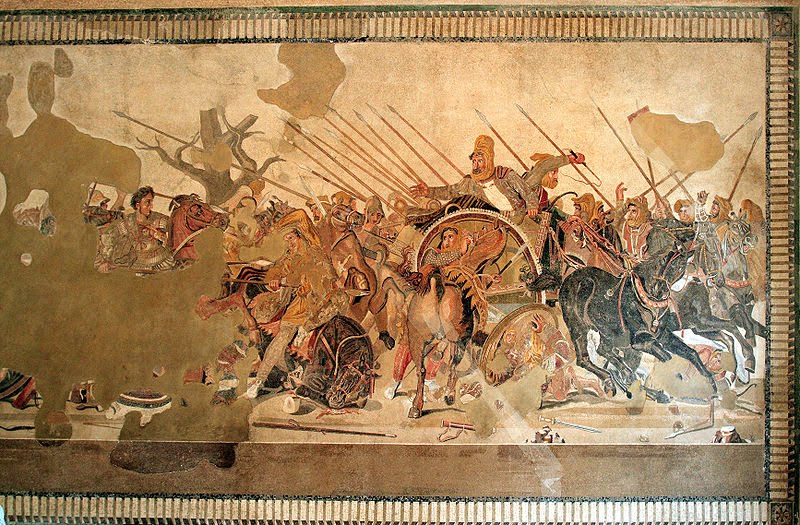
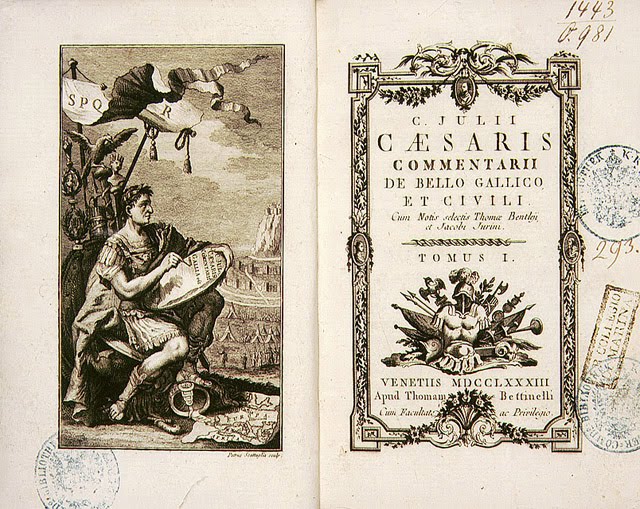
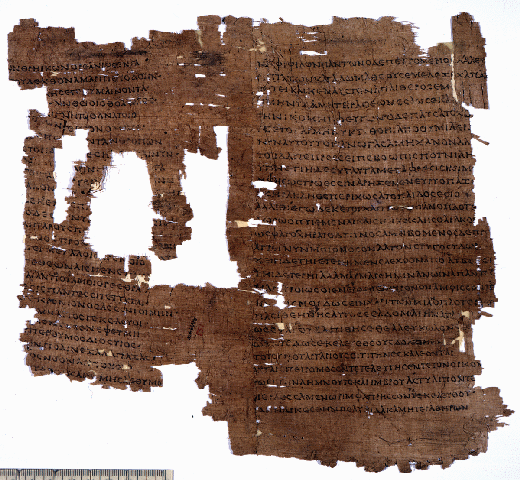
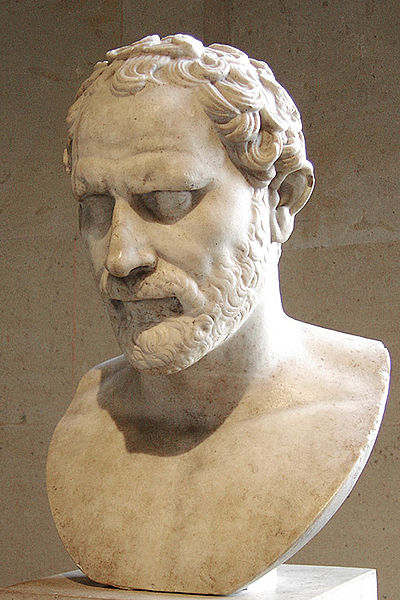


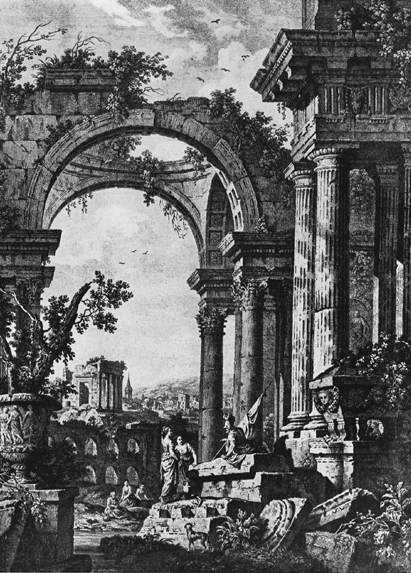




No comments:
Post a Comment